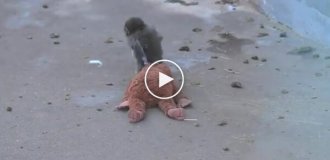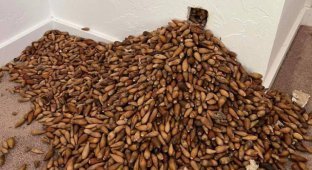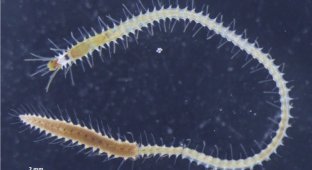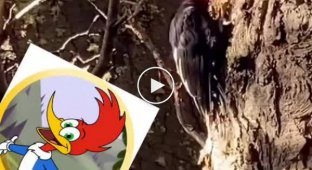Top 5 animals by tongue length. Who has this organ 2 times the size of their own body? (9 photos)
If your mother told you as a child that showing your tongues is indecent, then no one taught these animals etiquette. They wave their giant tongues left and right. And all because they have something to show! Meet the top animals with the biggest tongues! 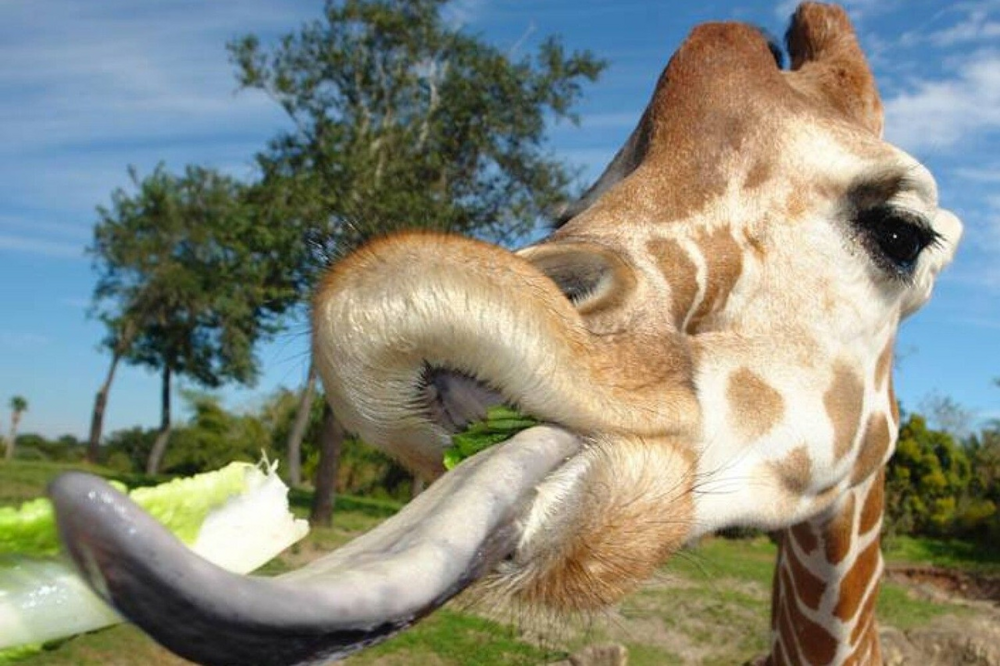
The invited guest of the article is a giraffe. His tongue can reach half a meter! But in relation to the dimensions of the body, this is negligible.
5th place.
The green woodpecker (Picus viridis) opens our top. The length of the bird's tongue is almost a third of the length of the entire bird - as much as 10 cm. All woodpeckers have a long tongue. But the green woodpecker differs from its fellows in its diet: it feeds not on tree insects, but on ants. Making its way into the passages of the anthill with its tongue, the bird deftly catches insects. He places them like meat on a skewer, thanks to a special tip - the end of the tongue is hard and jagged. 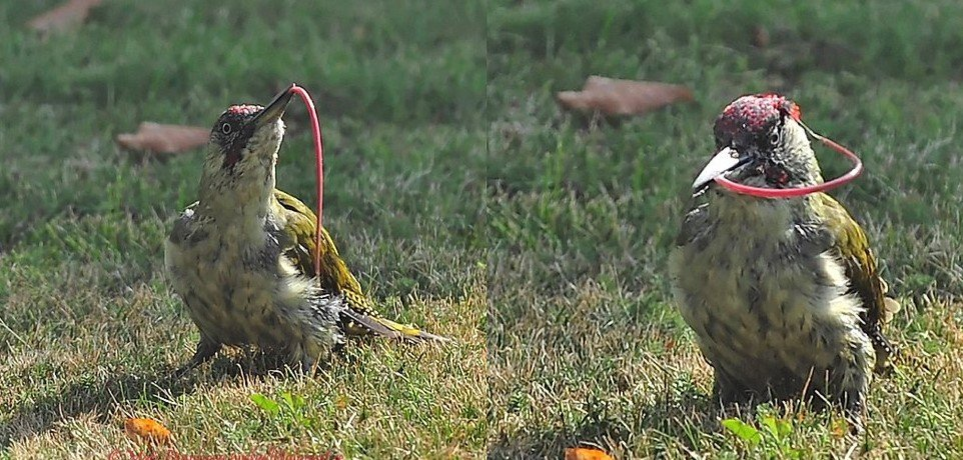
Someone is confused about himself. And the green woodpecker is confused in his tongue.
But how does such a long tongue fit into such a small beak? It wraps around the skull! This is not an allegory, but a statement of fact: the root of the tongue is located in the nostril, and the organ itself wraps around the head and exits through the mouth. 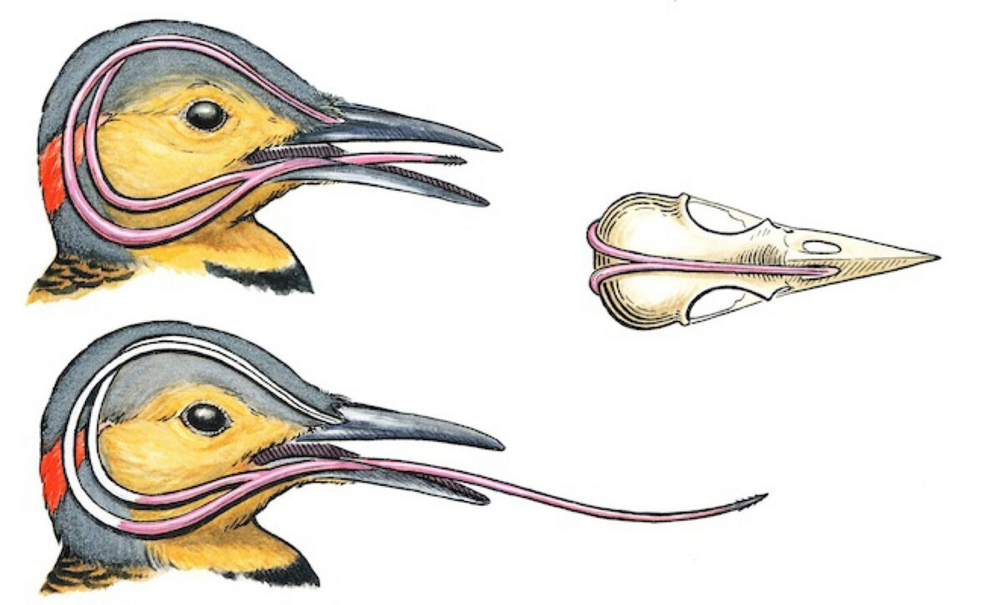
Now you won't be able to look at woodpeckers any differently.
4th place.
The four-toed anteater (Tamandua tetradactyla) is comfortably in fourth place. Its tongue grows up to 40 cm - this is half of the total length of the entire body! A record ratio among all anteaters. Like any other self-respecting anteater, it feeds on social insects. And not just ants: termites, wasps and bees are also targeted. The beast stirs up the insects' shelters with its powerful front paws, and with its long and sticky tongue it quickly licks off the fire victims of the anthill/termite mound/hive. 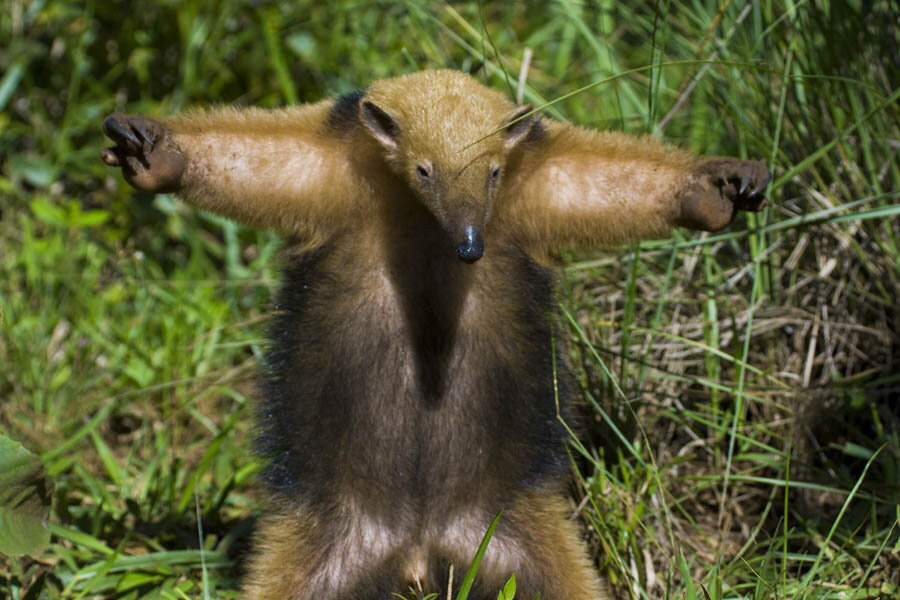
Are you tormented by cockroaches? Are you stuck with ants and bedbugs? We are coming to you!
By the way, the mouth opening of anteaters is so small that the tongue, in fact, is the only thing that fits into it. Animals do not have teeth in their mouth - instead, they chew insects... with their stomach! Powerful walls actively grind insects that enter the gastrointestinal tract into a nutritious porridge. 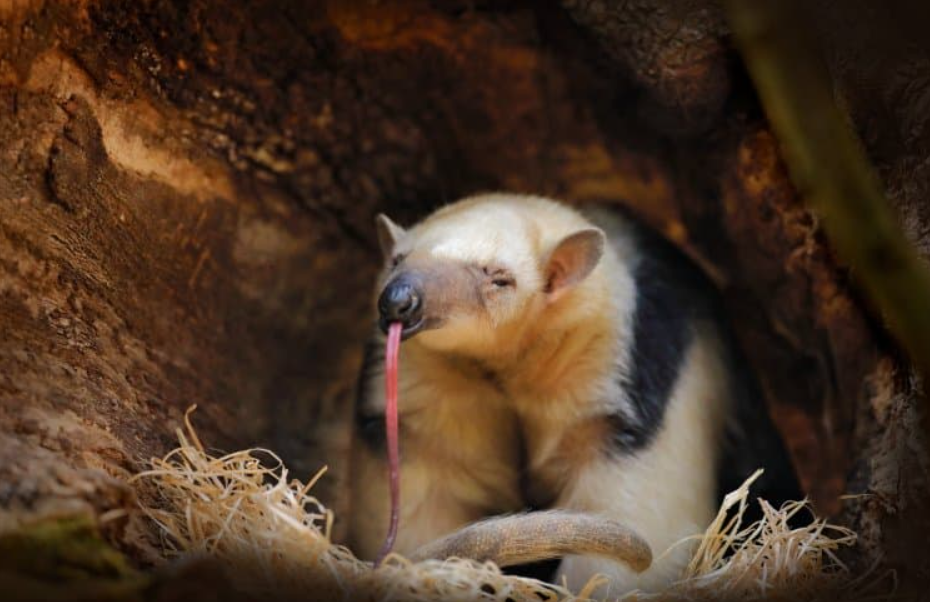
Sticks his tongue out at all those who have to spend a lot of money on dental services.
3rd place.
An honorable third place is awarded to the Australian echidna (Tachyglossus aculeatus). Its tongue length reaches 25 cm with a total body length of 40 cm. In other words, the length of the echidna’s tongue is 62.5% of the length of its body. But the echidna is a modest animal, so it can only stick out 18 cm. Just like other record holders, the echidna grew its organ in order to feast on insects. To effectively vacuum up bugs, the animal makes up to 100 tongue movements per minute. 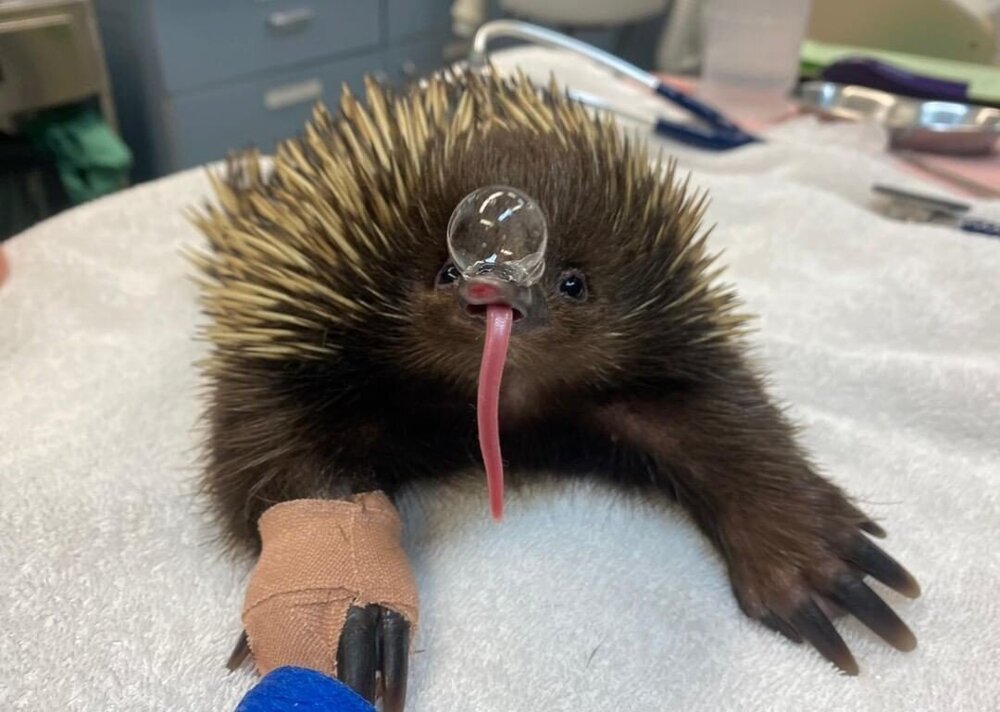
How cute!
2nd place.
A disappointing second place goes to the tube-lipped nectar bat (Anoura fistulata). It's a shame because it has the longest tongue among mammals - 150% of the length of the entire mouse. That is, if the dimensions of the bat are 5-6 cm, then the tongue accounts for up to 8.5 cm. 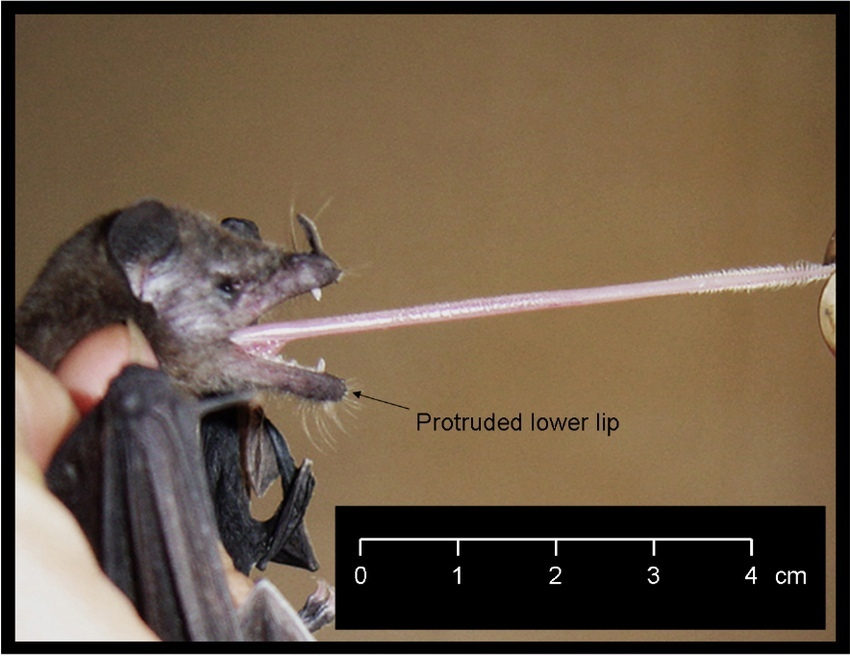
When the ENT asked to do AAAAAAAAAAAAAAA.
And all in order to pollinate a single flower called Centropogon nigricans. This is an example of a couple that, in the literal sense of the word, cannot exist without each other: the mouse has adapted to feast on the nectar of a particular flower, and the flower is able to pollinate only thanks to the chiropteran gourmet. 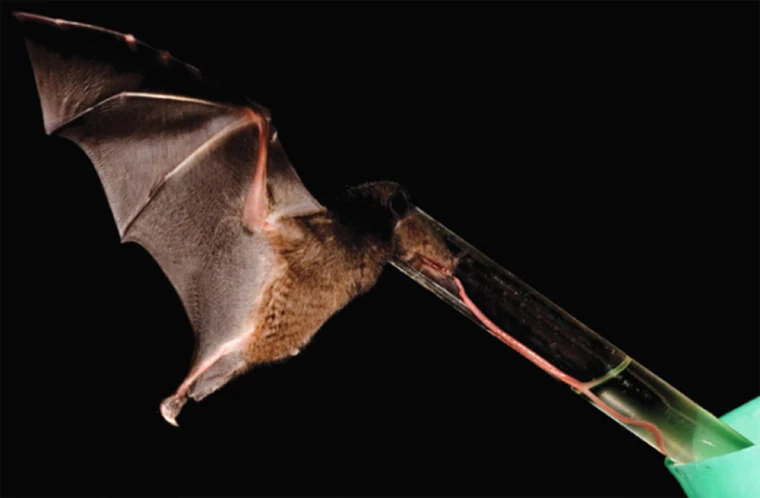
Young man, don't loose your tongue!
1 place.
And finally, first place, undisputed champion, public favorite, please love and favor - the chameleon! In any chameleon, regardless of its species, the length of the tongue exceeds the length of the body by 1.5-2 times. Moreover, the smaller the chameleon, the longer its tongue. 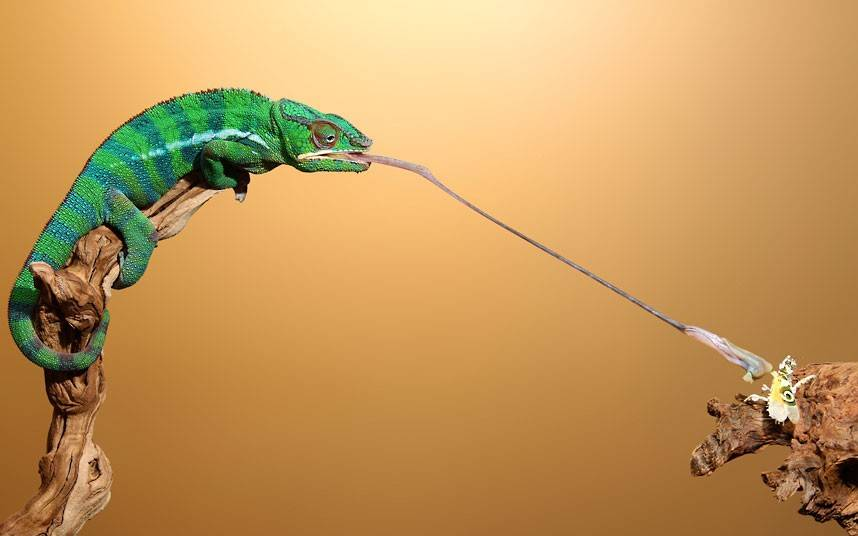
That moment when you're trying to get something from the top shelf, but...you're missing a couple of millimeters.
The lizard approached the issue of storing its ballistic weapon inventively: the chameleon’s tongue is very plastic. In a calm state, it is strung on the hyoid bone, like a cover. But during the hunt, it turns into a weapon of total destruction of arthropods. The reptile is capable of accelerating its organ to a speed of 100 km/h!








